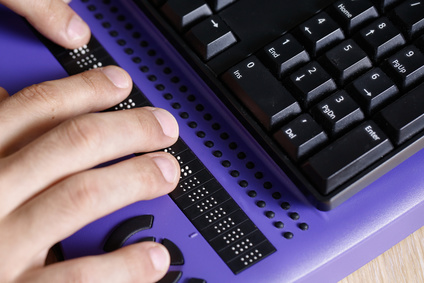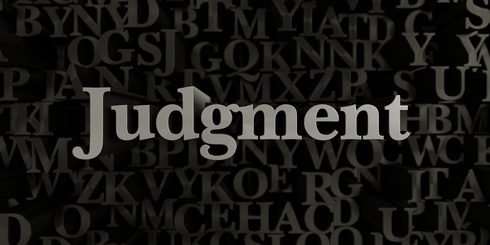The U.S. Court of Appeals for the Ninth Circuit recently held that a bankruptcy trustee was authorized to sell real estate free and clear of unexpired leases under 11 U.S.C. § 363(f), and the sale was not a rejection of the unexpired leases and therefore did not implicate 11 U.S.C. § 365(h). In so ruling, the Ninth Circuit adopted the minority approach established in Precision Indus., Inc. v. Qualitech Steel SBQ, LLC, 327 F.3d 537 (7th Cir. 2003), which held that sections 363 and 365 may be given full effect without coming into conflict with one another. By allowing the…
The U.S. District Court for the Southern District of Florida recently held, after a non-jury trial, that a regional supermarket chain violated the federal Americans with Disabilities Act (ADA) because its website was inaccessible to the visually impaired. A copy of the Verdict and Order in Gil v. Winn-Dixie Stores, Inc. is available at: Link to Opinion. The plaintiff, a legally-blind customer of the supermarket who also suffers from cerebral palsy, sued under the ADA, 42 U.S.C. §§ 12181-12189, alleging that its website was not accessible, seeking declaratory and injunctive relief and attorney’s fees and costs. The parties did not dispute…
The U.S. District Court for the District of New Jersey recently concluded that a putative class representative did not have standing under Spokeo to sue for a technical violation of the federal Fair and Accurate Credit Transactions Act (FACTA). The Court identified the issue as whether the consumer alleges a sufficiently “concrete” harm to confer standing, based on a technical violation of FACTA, 15 U.S.C. § 1681, et seq., when a retail store printed the first six numbers and last four numbers of his credit card on his transaction receipts. Relying on the Supreme Court’s ruling in Spokeo Inc. v.…
The U.S. Court of Appeals for the Fifth Circuit recently affirmed summary judgment under the Fair Debt Collection Practices Act (FDCPA) in favor of the debtor and against a debt collector, where the debt collector failed to mark the debtor’s account as disputed when it credit reported the account. The debt collector admitted that it had not marked the account as disputed because it incorrectly believed that credit reporting a debt as disputed was subject to the requirements of 15 U.S.C. § 1692g, which governs validation of a debt and the treatment of disputed debts. In so ruling, the Fifth…
The U.S. Court of Appeals for the Eleventh Circuit recently held that section 707(b) of the Bankruptcy Code, which allows a bankruptcy court to dismiss a chapter 7 petition if it finds that relief would be an “abuse” as defined in that section, applies to a petition initially filed under chapter 13 and converted to chapter 7. A copy of the opinion in Pollitzer v. Gebhardt is available at: Link to Opinion. A debtor filed bankruptcy under chapter 13 of the Bankruptcy Code, which allows a debtor to restructure his debts and keep his assets by submitting a plan that provides…
The District Court of Appeal of Florida, Fifth District, recently held that a foreclosure complaint was not time-barred despite the initial default occurring outside Florida’s five-year statute of limitations, because the mortgagee both alleged and proved that the borrowers defaulted on every payment due from the date of the initial default. In so ruling, the 5th DCA applied the standards set forth by the Florida Supreme Court in Bartram v. U.S. Bank Nat’l Ass’n, to conclude that the foreclosure action was not barred by the five-year statute of limitations under Fla. Stat. § 95.11(2)(c), because the mortgage was in a…
The Bankruptcy Appellate Panel of the U.S. Court of Appeals for the Sixth Circuit recently held that the bankruptcy court lacked subject matter jurisdiction under the Rooker-Feldman doctrine to void the foreclosure of a mortgage lien that was executed by the debtors before bankruptcy, but recorded while the automatic stay was in effect. In so ruling, the BAP held that the mortgage was effective upon signing, the pre-petition lien survived the bankruptcy, the creditor’s exercise of its in rem rights did not implicate the discharge order, and the bankruptcy court incorrectly applied the exception to the Rooker-Feldman doctrine recognized in…
The U.S. Court of Appeals for the Eighth Circuit recently affirmed summary judgment against a former husband borrower and his ex-wife on their claims under the Missouri Merchandising Practices Act (MMPA) and for tortious interference with contract. In so ruling, the Court held that the foreclosure of the plaintiffs’ home loan was justified due to the husband’s misrepresentation on the modification application that he, not his ex-wife who was responsible for making the payments, was experiencing financial hardship and could not afford the loan payments. A copy of the opinion in Dale Wheatley v. JP Morgan Chase Bank is available…
The Bankruptcy Appellate Panel of the U.S. Court of Appeals for the Sixth Circuit recently held that a mortgage foreclosure deficiency judgment lien may be avoided under 11 U.S.C. § 522(f)(2), reversing the bankruptcy court’s ruling to the contrary. A copy of the opinion in In re Antoinette Pace is available at: Link to Opinion. The debtor filed a chapter 13 bankruptcy, listing her residence in Ohio on her schedules with a value of $147,630. She also claimed the residence as exempt homestead in the amount of $132,900, the maximum allowed pursuant to Ohio law. On her Schedule D, the debtor…
The U.S. Court of Appeals for the Seventh Circuit recently concluded that a putative class representative’s unaccepted deposit of payment with the trial court under Fed. R. Civ. P. 67 by the defendant does not moot the representative’s individual claim or disqualify him from serving as a class representative. The Seventh Circuit described the issue as a variation of the one presented in Campbell-Ewald Co. v. Gomez, 136 S. Ct. 663 (2016). As you may recall, in that case, the Supreme Court concluded that an unaccepted settlement offer or offer of judgment does not moot a plaintiff’s case. The specific…
The U.S. Court of Appeals for the Eighth Circuit recently reversed the dismissal of a borrower’s lawsuit against his mortgagee for failing to restore his title after a non-judicial foreclosure and subsequent execution of a loan modification agreement, holding that the borrower’s claims were not time-barred and accrued only when he tried to sell the home more than five years after the modification agreement. A copy of the opinion in White v. CitiMortgage, Inc. is available at: Link to Opinion. A borrower refinanced his home mortgage loan in 2003, and defaulted in 2008. The loan servicer gave the borrower notice and…
The U.S. Court of Appeals for the Second Circuit recently joined the Seventh Circuit in holding that printing a credit card expiration date on an otherwise properly redacted receipt does not constitute an injury in fact sufficient to establish Article III standing to bring a claim alleging a bare procedural violation of the federal Fair and Accurate Credit Transactions Act of 2003 (FACTA). Accordingly, the Second Circuit affirmed the ruling of the trial court dismissing the plaintiff’s amended complaint. A copy of the opinion in Crupar-Weinmann v. Paris Baguette America, Inc. is available at: Link to Opinion. The plaintiff brought…












